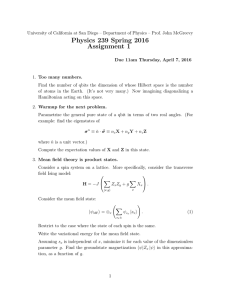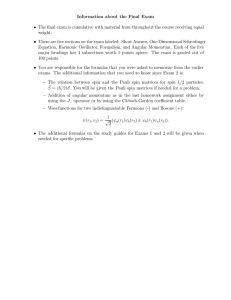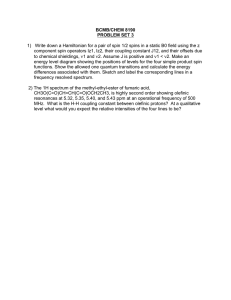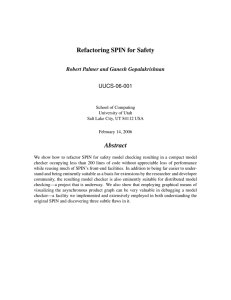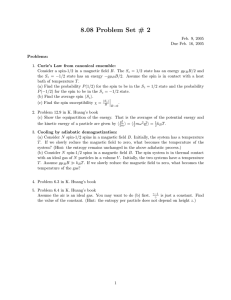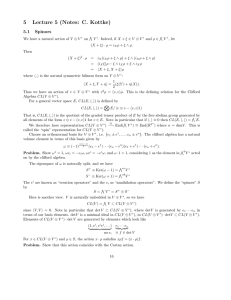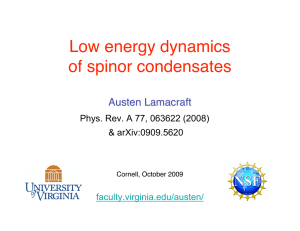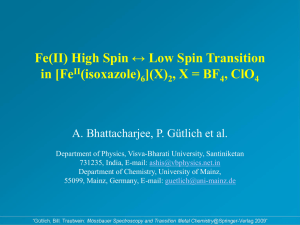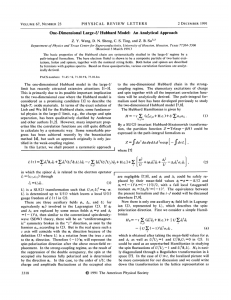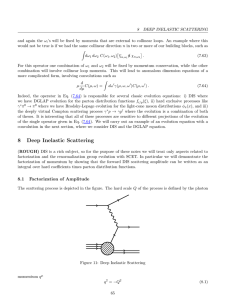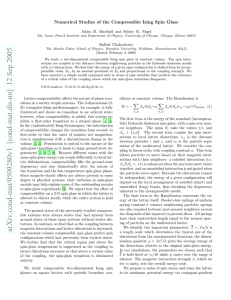8.08 Problem Set # 3
advertisement
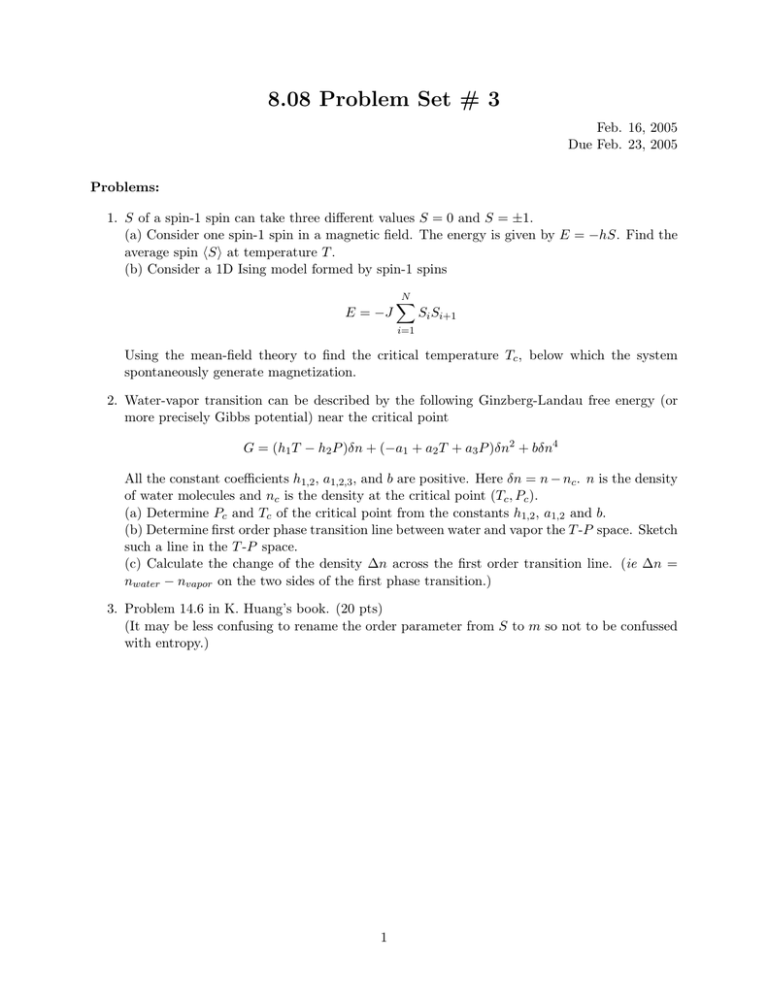
8.08 Problem Set # 3 Feb. 16, 2005 Due Feb. 23, 2005 Problems: 1. S of a spin­1 spin can take three different values S = 0 and S = ±1. (a) Consider one spin­1 spin in a magnetic field. The energy is given by E = −hS. Find the average spin �S � at temperature T . (b) Consider a 1D Ising model formed by spin­1 spins E = −J N � Si Si+1 i=1 Using the mean­field theory to find the critical temperature Tc , below which the system spontaneously generate magnetization. 2. Water­vapor transition can be described by the following Ginzberg­Landau free energy (or more precisely Gibbs potential) near the critical point G = (h1 T − h2 P )δn + (−a1 + a2 T + a3 P )δn2 + bδn4 All the constant coefficients h1,2 , a1,2,3 , and b are positive. Here δn = n − nc . n is the density of water molecules and nc is the density at the critical point (Tc , Pc ). (a) Determine Pc and Tc of the critical point from the constants h1,2 , a1,2 and b. (b) Determine first order phase transition line between water and vapor the T ­P space. Sketch such a line in the T ­P space. (c) Calculate the change of the density Δn across the first order transition line. (ie Δn = nwater − nvapor on the two sides of the first phase transition.) 3. Problem 14.6 in K. Huang’s book. (20 pts) (It may be less confusing to rename the order parameter from S to m so not to be confussed with entropy.) 1
